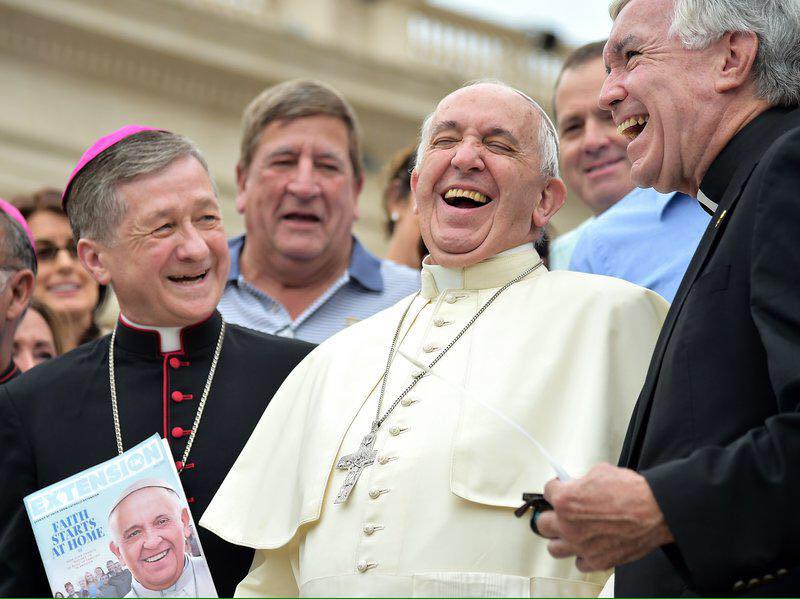
LifeSiteNews is running a breaking story right now, the headline of which almost gets it right:
BREAKING: Archbishop Cupich lays out pathway for gay couples to receive Communion at Vatican press scrum
We must call it what it is. What Archbishop Cupich is advocating for — most likely feeling empowered by what’s happening at the Synod — is Eucharistic desecration. Sacrilege. Mortal sin. 1 Corinthians 11:27-28 territory.
Archbishop Blase Cupich of Chicago — who is participating in the Synod of the Family at Pope Francis’ personal invitation — said at a press scrum in the Vatican press office this afternoon that the conscience is “inviolable” and that he believes divorced and remarried couples could be permitted to receive the sacraments, if they have “come to a decision” to do so “in good conscience” – theological reasoning that he indicated in response to a follow-up question would also apply to gay couples.
“In Chicago I visit regularly with people who feel marginalized: the elderly, the divorced and remarried, gay and lesbian individuals and also couples. I think that we really need to get to know what their life is like if we’re going to accompany them,” he said.
When asked to give a concrete example of how he would accompany the divorced and remarried in their desire to receive the sacraments, Cupich replied: “If people come to a decision in good conscience then our job is to help them move forward and to respect that. The conscience is inviolable and we have to respect that when they make decisions, and I’ve always done that.”
When asked by LifeSiteNews if the notion of accompanying people to the sacraments who had a clear indication of conscience to do so also applied to gay couples in the Church who wish to receive Communion, Cupich indicated an affirmative answer.
“I think that gay people are human beings too and they have a conscience. And my role as a pastor is to help them to discern what the will of God is by looking at the objective moral teaching of the Church and yet, at the same time, helping them through a period of discernment to understand what God is calling them to at that point,” he said. “It’s for everybody. I think that we have to make sure that we don’t pigeonhole one group as though they are not part of the human family, as though there’s a different set of rules for them. That would be a big mistake.”
This man – appointed by Pope Francis as Archbishop of Chicago and personally invited by Pope Francis to the Synod should be forced to resign and censured.
Instead, we get this. Acts 20:29-31 writ large.


